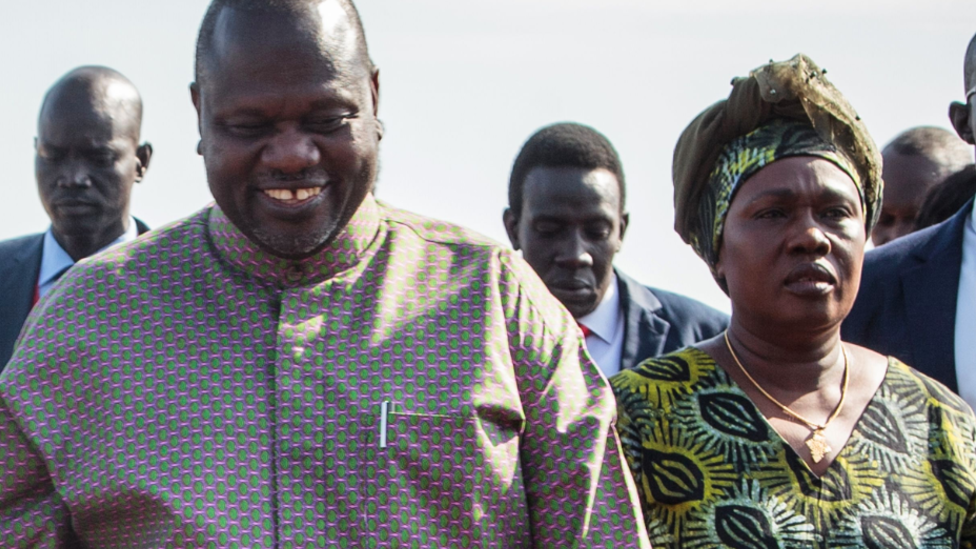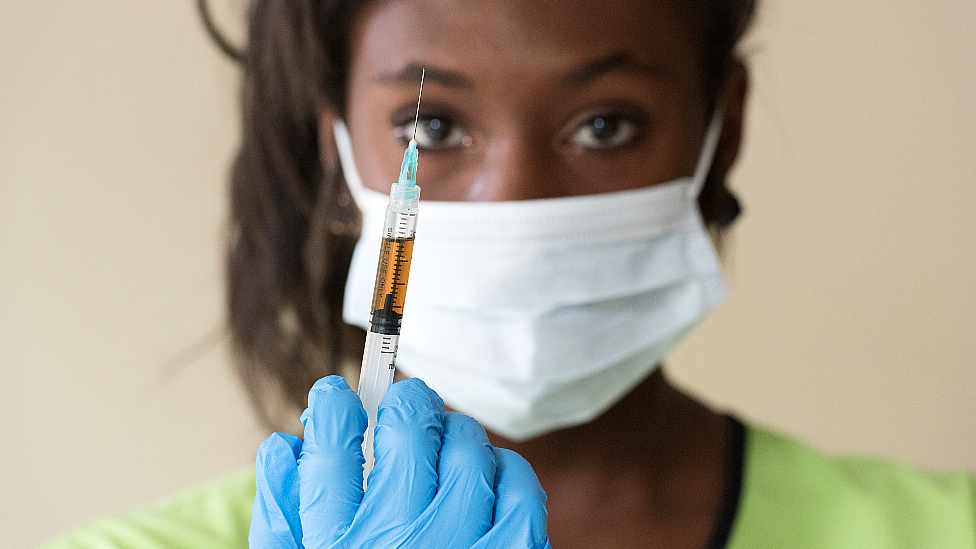Coronavirus: South Sudan's VP Riek Machar contracts Covid-19
- Published

Riek Machar and his wife Angelina Teny were among several high-profile people to test positive
The Vice-President of South Sudan, Riek Machar, who was part of a task force to fight coronavirus, is in self-isolation after testing positive for Covid-19.
Mr Machar said as several other members of the task force were infected a new team was taking over their work.
His wife, who is Defence Minister Angelina Teny, some bodyguards and other staff also have the virus.
Experts worry that decades of conflict has left South Sudan incapable of dealing with a surge in new infections.
So far South Sudan has recorded 236 cases of Covid-19 and four deaths.
Last week, the authorities announced the virus had reached a UN refugee camp in the capital, Juba, where some 30,000 people have sought seeking shelter and protection.
A case has also been confirmed in a similar camp in northern Bentiu, home to almost 120,000 people, the AFP news agency reports.
Quarantine
Mr Machar said that a member of the Covid-19 task force tested positive for coronavirus last week.
As that person had been "mixing" with the rest of the team, he decided that everyone on the task force be tested.
"Many of our colleagues who have been found positive are in good health... from now onwards we shall be quarantining ourselves in the house," Mr Machar said.

GLOBAL SPREAD: Tracking the pandemic
RECOVERY: How long does it take to get better?
A SIMPLE GUIDE: What are the symptoms?

Mr Machar formed a joint government with his political rival President Salva Kiir in February after years of conflict which has resulted in hundreds being killed and thousands being displaced.
As part of the power-sharing deal, Mr Machar, is ranked first among four vice-presidents serving as deputy leaders to Mr Kiir.
Apart from dealing with the Covid-19 pandemic, South Sudan has also been named among countries most at risk of what the UN World Food Programme (WFP) calls a "hunger pandemic".
The WFP says that hunger and malnutrition in the country are at the most extreme levels since 2011, with almost 60% of the population struggling to find food every day.
Making the situation worse, swarms of locusts which had destroyed crops across East Africa arrived in South Sudan earlier this year.

You may also be interested in:
Locust swarms are adding concerns to food security in Africa during the pandemic.

- Published18 May 2020
